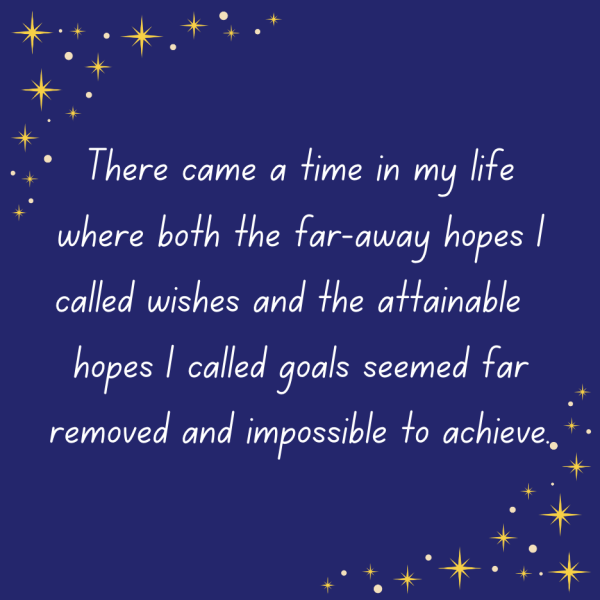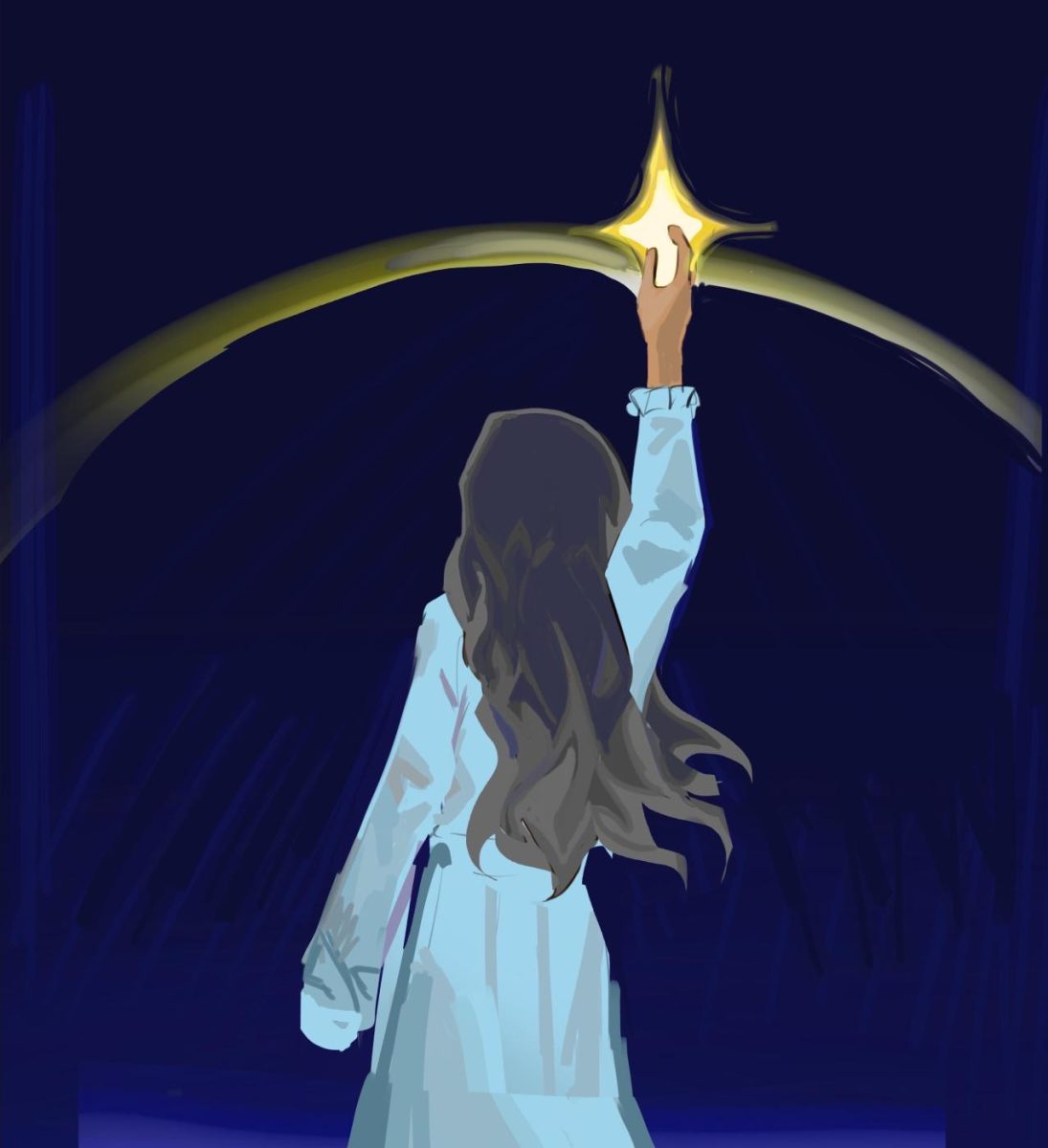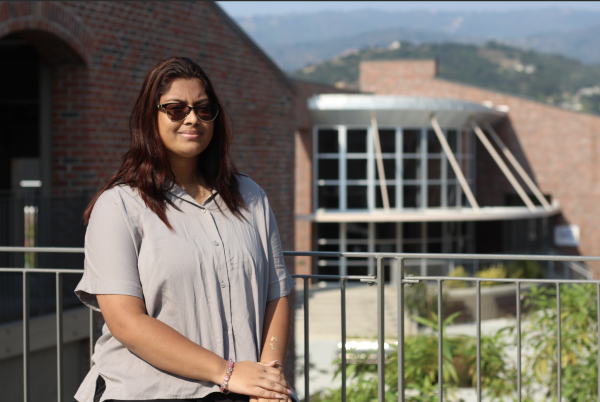What are you hopeful for?
On the surface, it’s an easy question with an easy answer. Many people are often thinking of the next best thing, the next achievement — it’s natural to say, ”I am hopeful about getting a 1600 on my SAT” or “I’m hopeful about getting a date to prom.” My immediate reaction, however, is blanking out. Rifling through the options in my head, my instant considerations of I’m hopeful about getting into a good college or I want to get an A in Calculus feel more akin to a dream rather than a hope, just wishful thinking that’s not nearly tangible enough for me to feel justified to use as a response.
Nothing, is my final answer. I am hopeful about nothing.
The idea of hope is one that has given me a lot of stress. There is a constant mantra in life that you must have hope to reach new heights or else you will achieve nothing. I expect my hopes to be attainable and lead to direct improvement, and am constantly overthinking whenever someone asks me about my hopes because of it — leading to my response always being “absolutely nothing.”
That’s not to say I’ve never hoped for anything, but growing up, there came a time in my life where both the far-away hopes I called wishes and the attainable hopes I called goals seemed far removed and impossible to achieve. I could never see myself fulfilling any of the things I referred to in my head as goals: either they felt too difficult — on the edge of impossible — or were so distant from my present life that they felt less like a goal and more like a far-off aspiration. I felt as though my hopes had to be directly achievable — if they weren’t, could they really be “hopes” at all? If my wishes were white holes, supposedly existing in the universe but impossible to categorize as real, then my goals were stars — visible yet unattainable.

I told myself it was OK that I did not have anything to look forward to, assurances coming in the form of useless platitudes — I was simply living in the present, as people should, and it was good for my mental health to not pressure myself with considerations of the future.
But the idea of hope is one that is intrinsically intertwined with looking forward to the future, and life stagnates without that hope. If you never consider what happens next, bothimprovement and change in general become impossible to reach.
There came a moment when I had to consider if this lack of change — for better or for worse — was really worth it. I felt more comfortable in this stationary bubble I had created, but it was boring, in a way. Without having any idea of the future I wanted to achieve for myself, I couldn’t do anything to achieve it. It’s like running a race blindfolded — if you have no idea where you are going, how can you ever cross the finish line? It’s incredibly difficult, if not nearly impossible. Being able to see is a necessity, and so no matter how painful it may be to do so, I couldn’t just continueto wear a blindfold.
I couldn’t just immediately rid myself of my hesitance with hopes, but I could work to rewrite the expectations that cause my trepidation in the first place — start looking towards the future and making it so that this standard is not one that needs to be innately stressful. Maybe being hopeful, at its core, doesn’t just have to be about my goals for the future — where I want to be in five, 10, 20 years. Sometimes, it could just be about the little things. I could want my favorite Formula One driver to win the Grand Prix (Max Verstappen, in case you were wondering), and it would still give me a sense of hope — perhaps not about my own life, but about the future.
Maybe these little hopes won’t give me a clear-cut answer to the question ‘What are you hopeful for?’ but it’s a start. And maybe my hope that Max wins the Abu Dhabi Grand Prix is a bit embarrassing to say, but I’d still consider it better than answering with another “nothing.”










